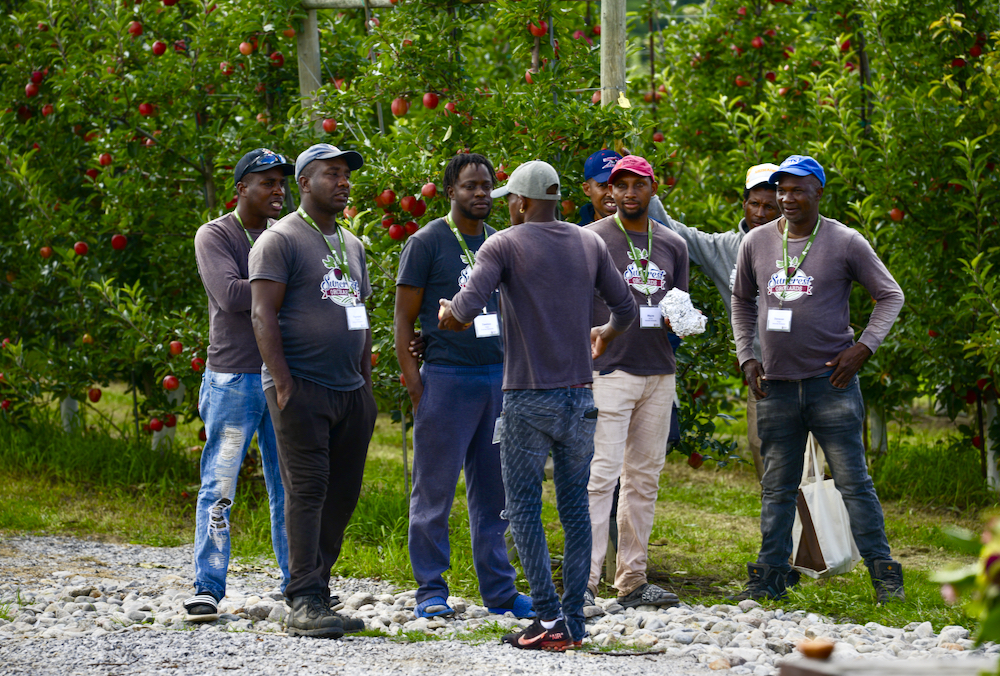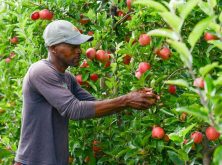The Jamaican government has cleared Canada’s Seasonal Agriculture Worker Program of allegations that it has systematic slave-like conditions, following receipt of an independent investigation.
In August 2022, two Jamaicans employed under the program drew international attention after they emailed Karl Samuda, Jamaican minister of labour and social security, described the program as “systematic slavery” and made allegations of abuse.
Why it matters: Two Jamaican workers affiliated with the Migrant Workers Alliance for Change alleged they were “treated like mules and punished for not working fast enough” on two Ontario farms.
Read Also

Defence investments could benefit agriculture
A bump in Canada’s NATO spending commitments could lead to infrastructure investments that would benefit rural areas
“From our own assessment, we were able to observe a deep sense of pride and fulfilment among the vast majority of farm workers,” the independent task force report reads. “There is no evidence to bear out the claim that the Canadian Seasonal Agricultural Worker Program (SAWP) is akin to ‘systematic slavery.’”
Bill George, labour committee chair for the Ontario Fruit and Vegetable Growers’ Association, welcomed completion of the Jamaican government’s fact-finding report.
“We recognize there is always more that can be done to ensure all workers have the opportunity for a positive and safe working experience while they help our farms grow fruits and vegetables for the Canadian public,” said George.
“However, the report clearly shows that can be done with specific targeted measures rather than assigning hateful and broad labels to all the hardworking farmers and their employees in the program.”
Investigators engaged several organizations, including the Jamaica Liaison Services, those overseeing SAWP and Jamaican farm workers. They did on-site inspections of 65 farms in six provinces, conducted in-person and telephone interviews and surveys, and organized focus groups to collect data from Jamaican SAWP workers.
The survey found 66.9 per cent of respondents agreed that work in Canada aligned with their expectations, and 14.6 per cent of those said enrolling in SAWP and the work required was easier than anticipated.
Additionally, 73.7 per cent of those surveyed said they willingly agreed to work on their day off, citing extra pay as the driving factor, and 34.9 per cent said they’d voluntarily work on a day off to finish a job.
Some 93.6 per cent said they would remain at their accommodation if they were ill and could not physically work.
George said the report indicates Jamaicans value the program for providing jobs that allow workers to support their families, provide health care and education, and establish farms and businesses in their home country.
Without the skills and expertise of the Jamaican workforce, many labour-intensive fruit and vegetable crops could no longer be grown in Ontario, he said, because of the widespread and growing labour shortage.
“Jamaican farmworkers are essential to SAWP,” said Ken Forth, president of the Foreign Agricultural Resource Management Service that administers Ontario’s federal program.
The report said 70 per cent of workers surveyed provided positive reviews for housing and accommodation, with a 30-40 split for excellent and good, respectively. Seven out of 10 workers said employer treatment was either good or very good, and 87 per cent said farm owners were respectful.
“The findings of the investigation reinforce the deep sense of effort, pride, and fulfilment they carry with them on-site,” said Forth. “That’s the reason why Jamaican labour is in such great demand.”
Syed Hussan, executive director of Migrant Workers Alliance for Change, said it isn’t inconsequential that 34 per cent of respondents rated their experience as poor.
“That is a substantial number of people but even one person is too much,” Hussan said. “No one we know filled (the survey) out, and we have over 1,000 Jamaican members.”
Hussan said he believes the report findings are skewed because they excluded in-depth ill-treatment complaint summaries and the results of interviews with 300 Jamaican workers represented by the alliance. Further, he said the Jamaican government’s report prioritized protection of its self-interest.
“These workers are seen simply as cash cows that are returning money to their home countries,” Hussan said, adding that in the 12 months preceding the investigation, the alliance received 900 complaints from Jamaican workers.
If a power imbalance exists between employers and workers, the workers will hesitate to speak up and protect themselves due to threat of reprisals. Those can include being sent home and blacklisted from returning.
“With a fundamental power imbalance, it’s not possible for anybody to protect themselves and live in safety and dignity,” said Hussan. “What needs to be done for the federal government of Canada to ensure rights and protections for farmworkers (is) permanent resident status for everyone.”















